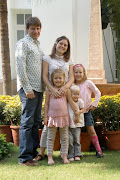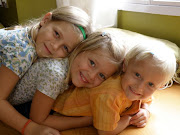I am written
Before creation
Chosen for new life
Stolen from death
Your poetry
For your own pleasure
A beautiful sound
In borrowed words
I am written
Carefully crafted
Thoughts yielded to you
Blogging from New Delhi, India, from January 2008 to July 2011 (at which time we moved back to Canada). These poems, stories and reflections provide a window into my world, and maybe a mirror into yours.
I am written
Before creation
Chosen for new life
Stolen from death
Your poetry
For your own pleasure
A beautiful sound
In borrowed words
I am written
Carefully crafted
Thoughts yielded to you
People ask us, "So, what's it like living in India?" Here are six random snapshots from last week that may help to answer that question.
The first snapshot is of a small crowd of people poised to listen to a man sing a song with his guitar.
It is Tuesday evening at Cafe 27, a dimly-lighted lounge with a low ceiling in the Kailash Colony market. A diverse group of about 25-30 people has gathered. I had been invited to read a few of my poems at the opening night of this new venue for a city-wide movement called Delhi Poetree. I was also asked to bring my guitar because the café owner apparently wanted to feature musicians as well. I agreed to carry the guitar, but I expressed reluctance about performing any musical numbers myself, stating that my lingering cold was still hampering my voice. It was a nice try. The next thing I knew I was clutching my guitar, adjusting the microphone and clearing my throat.
I decided to sing mostly because someone had already broken the ice with a valiant rendition of John Denver's Country Roads. The crowd loved it, including me. I figured, if the audience was that thirsty for a song, I'd be cruel not to share one.
I ended up doing four -- two original compositions and two covers: Unchained by Johnny Cash and Every Grain of Sand by Bob Dylan.
The beauty of the moment for me has nothing to do with my success as a singer -- which is very very limited, even though I really enjoyed myself on Tuesday night -- but everything to do with the unique opportunities that India seems to provide. It's all about the people -- they were a gracious audience, and I appreciated that.
The next two snapshots happened in the midst of Delhi traffic -- the perennial stage of the weird, wild and wonderful. Seriously, volumes could be written about the pure magic and the corresponding madness that thrives on the streets of this city on an almost constant basis. Two glimpses here will be sufficient.
The first is of a boy standing at the window of a car talking to the driver. I was the driver and the boy's name was Kabir. I saw him sitting on the curb as I approached the red light in my air-conditioned SUV. I was on my way home. He was looking down and holding his arm. But when he glanced up and saw my car, Kabir sprung to his feet and bounded over to my window. I could not help but reciprocate his smile. He was beaming, as usual.
We have become acquaintances now, although most of our lives are worlds apart. We have been meeting here for the past few weeks, mostly brief exchanges before the light turns green. He only knows a few words in English, so we end up conversing in simple Hindi. Initially, he came to my window only to beg. Now he comes to talk. Tuesday was our longest conversation. He asked specific questions about my kids and about my work in Delhi. I asked about the open sore on his arm. Sometimes I give him food, sometimes spare change. I always give him respect, and a smile. That day, as I drove away, it felt like we had given each other something more -- friendship.
Another snapshot in Delhi traffic has to do with sheer bewilderment. It was one of those moments when you ask yourself, Did I just see that? It is of a man throwing something out of his car window.
We were inching forward through a congested area and I was bumper to bumper with a bright red Tata pickup truck. It was shining. As I jockeyed for position and eventually moved alongside it, I could see the emblem of the Delhi Fire Service emblazoned on the door panel. Inside the truck, I could see two burly men in uniform, perhaps Fire Chiefs. (My brother-in-law back in Canada is the Captain of our local Fire Hall. It is a position of honour and responsibility.) As I observed the distinguished gentleman in the passenger seat, I noticed that he was smoking a cigarette. Then, he did it. I saw him do it. He threw his smoldering cigarette butt out of his window, onto the side of the street, into the dry mess of twigs, garbage, and dust. This ought not to be. People like that should know better. Fire Chiefs should not throw lighted cigarettes out of their window, especially when they're in uniform, especially when they're driving bright red Fire Service vehicles through city traffic. But it happened, and I saw it.
The fourth snapshot is a part of a much longer saga, another tale that needs to be told, perhaps another time. It is of one man handing another man an envelope, and leaning in to say something private. It has to do with acquiring visa extensions for my wife and children. Doing this kind of official work here in Delhi is always interesting, but this last episode has been downright strange. I applied for a six-month extension almost five months ago, and was told repeatedly to wait and come back later. If we get the visa now, it will be expired again within another month.
Anyway, the snapshot takes place last Thursday at the infamous Ministry of Home Affairs, a place of great tension and mystery for many foreigners in India. I've made at least ten visits here in the past couple months. I've also made a friend of sorts, one official who has taken a special interest in our file. He has told me on previous occasions that there have been "problems" in processing our application. His immediate superior will not authorize our request, so he is appealing to his superior's superior. I don't really understand the dynamics, but I trust the guy who stands in front of me. Sometimes, that's just what you have to do in these situations. Sometimes, it feels like a huge risk. Sometimes, it feels right. Fortunately, this time, my gut tells me it's OK to trust this guy. So I do. In fact, I've been trusting him for months now, following his instructions, waiting, calling, and waiting some more.
On Thursday, I see him for the first time in two months. He remembers me -- a good sign. He leads me deep into the bowels of the office building to his own desk in a crowded room with several desks and mountains of papers and files. Somewhere, our file is waiting, longing for attention. Beside this official's desk is the desk of his clerical assistant. I remember him. He looks up at me and, after a moment, mutters, "a wife and three children" -- another good sign. I compliment him for his exceptional memory.
After the two of them miraculously recover our file, they open it in front of me and briefly refresh themselves with the apparent issues. They're speaking softly in Hindi and I'm not able to follow their discussion. Suddenly, the official says to me, "Come back at 5:30pm and I'll give you the envelope."
I know the routine. The aforementioned envelope will be sealed and will contain written instructions for the people at the Foreigners Regional Registration Office (FRRO). I will take it there tomorrow or sometime next week and they will, hopefully, complete the process by giving us the appropriate stamps in our passports. Simple? If all goes smoothly at the FRRO, I will be amazed. I will kneel down before the God of heaven and give thanks.
At 5:30pm, I stand in another line waiting for the glorious distribution of envelopes. I am the last to receive it. As the same official hands it to me, with others still looking on, he leans in toward me and says in a hushed tone, "We got this with great difficulty."
"Why?" I ask sincerely.
He rolls his eyes and shakes his head. And gives no answer. I leave with my envelope.
My fifth snapshot is of a child with a broad smile on her face serving food to a group of adults, most of whom she has only just met. The child is my eldest daughter, Alexis, and the scene takes place in our home, though it looks nothing like how it usually looks. On Friday afternoon, our home was transformed into a Bollywood film studio. It wasn't our first brush with Bollywood, as one of our neighbourhood friends works in the industry and has given us various opportunities over the past few years. We've done some extra work and some acting, but this time they only wanted our home for filming a scene for an upcoming movie by Raj Kumar Gupta called No One Killed Jessica, starring Rani Mukherjee. The film is based on the real events surrounding the 1999 murder of model Jessica Lal in a Delhi night club and the spectacular court case that ensued.
It takes a lot of work, of course, to film each scene of a movie, even before the actors ever show up. It was a strange experience to have 40-50 people come into our home with all their equipment. It was an event that did not go unnoticed in our neighbourhood. Word spread quickly that a film was being shot at our house and at least one famous actress would be there. So, different ones of our neighbours tried to get past the bodyguards to get a peek, and maybe even a photo and an autograph. Fortunately, Miss Mukherjee was friendly enough and obliged a few of her fans. But the highlight for my wife and I was not seeing someone famous but seeing something special in someone very familiar to us. Our daughter Alexis loves meeting new people. With the house full of strangers, her gift of hospitality kicks in and she bolts to the kitchen to make brownies. After they were ready, she moved throughout the house with her plate and her smile, serving warm brownies to the entire crew. People were pleased; parents were proud. By 10pm Alexis and her sisters were asleep. By 1am, it was all done and everyone was gone.
The last snapshot takes place on Saturday and typifies an aspect of our lives here in Delhi that connects us to the wider world in a unique way. It is of a woman rushing up to our car with a look of horror on her face. She is a Polish woman who has become a friend of ours during the past few months. Her son played on the same soccer team as our daughter Alexis. They were two of the best players on the team. This woman's husband works at the Polish Embassy. We've actually never met him. Apparently, he's a very busy man. He never once watched one of his son's soccer games. On Saturday, we were expecting to meet him for the first time. The whole team was to meet at the Australian High Commission for an end-of-season pool party. As we pulled up to Gate Three, our friend was waiting outside without her husband. Seeing us, she ran over and told us why. Her husband had been called back to the Embassy to begin dealing with the news of a national tragedy. Only hours before -- maybe just minutes -- a plane had crashed in Russia, killing the Polish President, his wife and 95 others of the nation's top leaders who were on their way to attend a ceremony commemorating the most significant military defeat in Polish history -- another national tragedy in 1940 when some 4000 Polish army officers were slaughtered by Soviet secret police.
We don't know many Polish people. But here in Delhi, through soccer, we know one family. On Saturday, as they receive this news, they are in shock. Their lives are forever changed. They worry about the future of their nation. They knew people on that plane, personally, friends they will never see again.
News like this, of course, affects you differently when you hear it from people who are close to the tragedy. You can read about it in a newspaper and understand it rationally. But to hear it like this -- to see real tears and to hear a wavering voice -- you are able to appreciate the weight of it emotionally. And more importantly, you are given an opportunity to offer condolence and compassion, which we did.
During our time here in India, we've gotten a lot closer to India. But living in New Delhi, we've also gotten a lot closer to many other parts of the world. On Saturday, we shared something special -- however horrible -- with our Polish friends.



